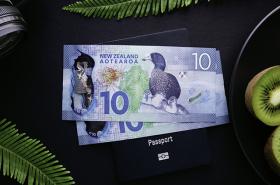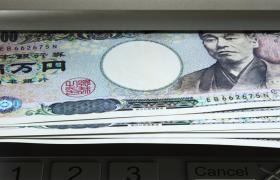Happy Valentine's Day fellow foreign currency lovers. How lovely that you are taking some time out of your loved-up day to read our article, we <3 you too. If you are in need of a last-minute gift for your Valentine, be sure to check out our gift guide. It's bursting with gifts perfect for the foreign currency romantics among us.
Valentine’s Day aside, let’s take a look at what impacted the Kiwi dollar this week.
USA data
This week the core consumer price index (CPI) figure for January was released, showing a rise of 0.2% and an annual increase of 2.3%. The Federal Open Market Committee's inflation target is set at 2%, so recent CPI figures are a sign of the economies good health. However, it is worth noting that the Fed's preferred inflation gauge is the personal consumption expenditure (PCE) deflator, which remains below 2%.
Either way, this news was positive for the US economy and boosted the value of the USD as a result.
Domestic News
On Wednesday the Reserve Bank of New Zealand met and confirmed market expectations by expressing a relatively neutral bias, explaining that they were unlikely to opt for a rate cut in 2020. After cutting interest rates by 75 basis points last year, it seems the RBNZ is not planning on cutting rates in the short term. However, RBNZ Governor Orr did note that a sustained period of the Coronavirus outbreak could definitely impact monetary policy.
While the RBNZ's neutral bias was good news for the NZD, as a cut to interest rates generally leads to a decrease in the value of the Kiwi dollar, the positive effect was outweighed by Coronavirus developments.
Coronavirus Developments
Currently, the value of the Kiwi dollar is being driven by concerns surrounding the Coronavirus. Yesterday the World Health Organisation announced an extra 200+ deaths and 14,000+ cases of Coronavirus. An official stressed that this didn't mean the virus was spreading faster. Instead, the numbers were backdated weeks after more accurate screening for the virus. Alas, it didn't do much to quell market concerns that China may have understated the number of those infected by more than 100,000.
The NZD is considered a 'risky' investment, and its value thrives in 'risk-on' markets where investors feel confident. The current global climate does not bode well for a risk-on market, hence the decreasing value of the NZD. Instead, markets are flocking to safer investments like the USD, JPY and CHF. While the NZD did react slightly to the updated figures from the WHO, the decline was not as sharp as otherwise expected.
Only time will tell how the Coronavirus situation and value of the NZD will pan out. What we do know now, is that if new data emerges showing a lack of stabilisation or spread of the virus, it will spell bad news for the Chinese economy and, in turn, the Kiwi dollar.
If you're in the market to grab some foreign currency, get peace of mind by adding Rate Move Guarantee to your purchase in-store. It's free, and if the rate improves within 14 days we will refund the difference*!
Enjoy your Friday, lovers.
This blog is provided for information only and does not take into consideration your objectives, financial situation or needs. You should consider whether the information and suggestions contained in any blog entry are appropriate for you, having regard to your own objectives, financial situation and needs. While we take reasonable care in providing the blog, we give no warranties or representations that it is complete or accurate, or is appropriate for you. We are not liable for any loss caused, whether due to negligence or otherwise, arising from the use of, or reliance on, the information and/or suggestions contained in this blog. All rates are quoted from the Travel Money NZ website and are valid as of February 14th 2020. Terms and conditions apply to Rate Move Guarantee.












